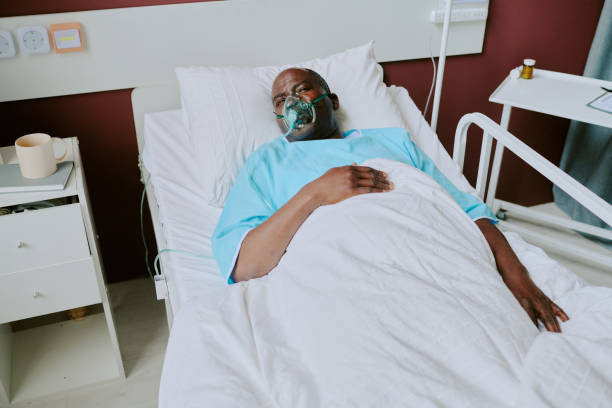Today in JAMA Network Open, researchers in Singapore document higher rates of cardiovascular events among adults hospitalized for respiratory syncytial virus (RSV) than among those admitted for influenza or COVID-19 Omicron infection.
The nationwide study, conducted before RSV vaccines were rolled out in Singapore, compared the risk of cardiovascular events (any cardiac, cerebrovascular, or thrombotic event) and intensive care unit (ICU) admission with or without a cardiovascular event among 32,960 adults hospitalized for an RSV, flu, or COVID-19 infection.
The comparison with flu took place from January 2017 to June 2024, and the comparison with COVID-19 occurred during Omicron XBB/JN.1 variant dominance (January 2023 to June 2024). The average patient age was 66.6 years, 51.7% were women, 6.5% had RSV, 43.7% had flu, and 49.8% had COVID-19. A total of 63.7% of patients had at least one underlying medical condition, 19.5% had preexisting cardiovascular disease, and 35.2% had diabetes.
"Respiratory viral infections (RVIs) are associated with elevated cardiovascular risk; however, less is known about cardiac complications after hospitalization for respiratory syncytial virus (RSV) vs other vaccine-preventable RVIs (COVID-19 or influenza)," the investigators wrote.
11% or RSV patients had a cardiovascular event
A total of 1,037 patients (3.2%) required ICU admission. Of the 2,148 RSV patients, 10.9% experienced an acute cardiovascular event, 94.1% of which involved cardiac events (99 abnormal heart rhythm, 66 heart failure, and 61 ischemic heart disease episodes).
The most common type of abnormal heart rhythm was atrial fibrillation or flutter (60 of 99 patients; 60.6%). A history of cardiac disease was linked to a more than double likelihood of an acute cardiovascular event (adjusted odds ratio [aOR], 2.53) among RSV patients compared with those with flu or COVID-19.
The aOR for any acute cardiovascular event among RSV patients versus COVID-19 patients who had received at least three vaccine doses was 1.31, the aOR for abnormal heart rhythms was 1.52, and the aOR for heart failure was 1.75.
A higher probability of an abnormal heart rhythm (aOR, 1.59), heart failure (aOR, 2.92), and other cardiac events (aOR, 2.40) was seen in RSV patients than in unboosted COVID-19 patients. Lower odds of cerebrovascular events, however, were noted in RSV patients than in vaccine-boosted COVID-19 patients (aOR, 0.28).
Priorities for vaccination
The occurrence of any cardiovascular event (aOR, 2.36), any cardiac event (aOR, 2.54), any major adverse cardiovascular or cerebrovascular event (aOR, 3.15), and any ischemic heart disease episode (aOR, 4.90) in an RSV hospitalization was tied to greater odds of severe RSV requiring ICU admission. Likewise, the occurrence of cardiovascular events in flu and COVID-19 patients was linked to a greater likelihood of needing ICU admission.
Cardiac manifestations of RSV are hypothesized to arise directly from myocardial injury or indirectly via a postinflammatory response and increased cardiovascular strain attributed to pulmonary disease.
The probability of a cardiovascular event wasn't significantly different in RSV or flu patients, except among contemporaneous post–pandemic-peak (2023-24) hospitalizations, in which the odds of heart failure (aOR, 2.09) were significantly higher in RSV hospitalizations than in vaccine-breakthrough flu hospitalizations. Sensitivity analyses restricted to adults aged 60 years or older yielded similar results.
"Cardiac manifestations of RSV are hypothesized to arise directly from myocardial injury or indirectly via a postinflammatory response and increased cardiovascular strain attributed to pulmonary disease," the study authors wrote.
"Evaluating vaccination's role in attenuating risk of cardiovascular events associated with vaccine-preventable RVIs remains important, given the availability of RSV vaccines for older adults and existing vaccine skepticism during COVID-19 endemicity," they added. "Individuals with a preexisting cardiac history remain at higher risk of acute cardiac events during RSV hospitalization and should be prioritized for vaccination."

















